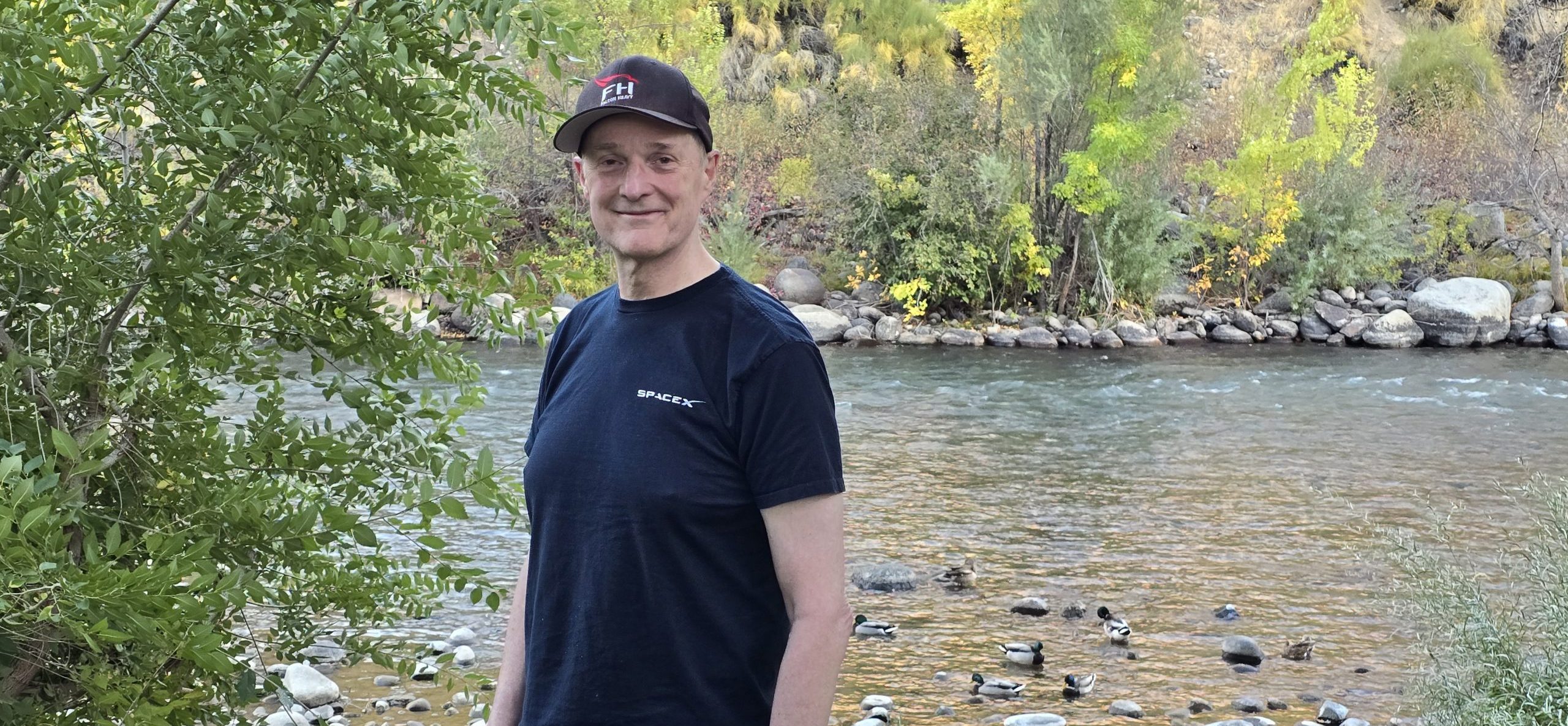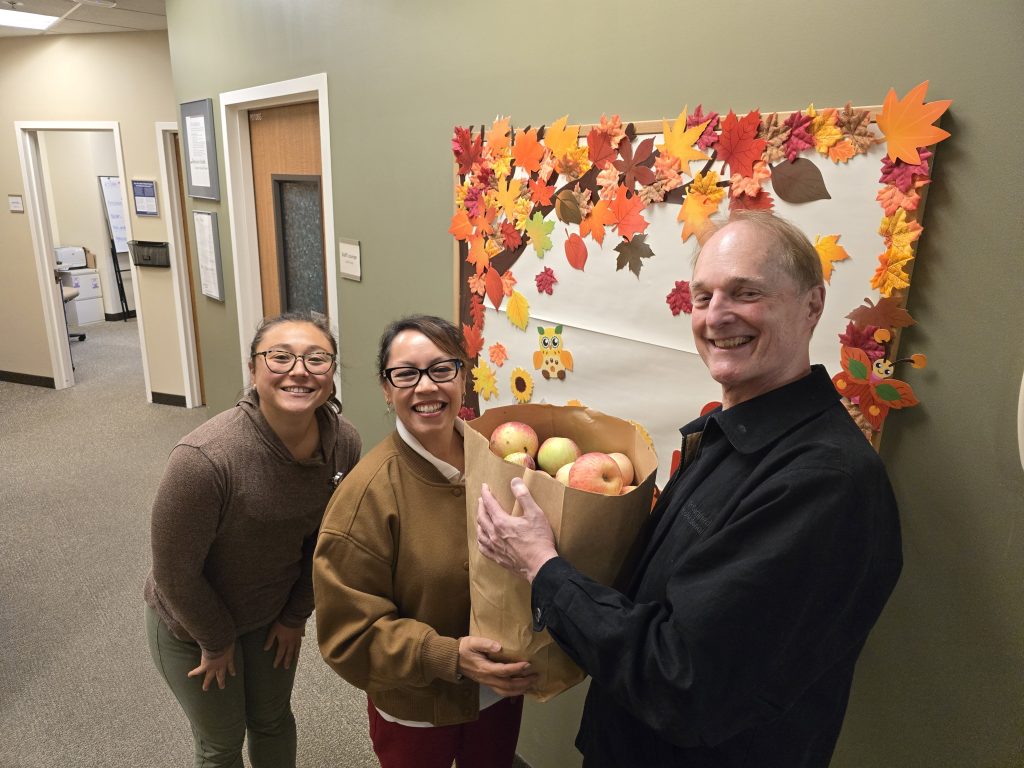 “Go for launch,” radios NASA’s launch director, commencing the countdown for the unmanned SpaceX mission.
“Go for launch,” radios NASA’s launch director, commencing the countdown for the unmanned SpaceX mission.
“T-minus ten, nine, eight, seven, six, five, four, three, two, one . . . and liftoff of Intelsat Galaxies 31 and 32. Go Falcon 9!”
Cheers erupt from the Cape Canaveral Space Force Station in Florida as the satellite-loaded rocket blasts up and into orbit.
On a deck across the river, self-described “space geek” and IT pro Craig Gleason watches the fiery blastoff with friends at their bed and breakfast in Titusville. It’s a fun side note to his own tech-related trip: installing wireless internet throughout the lodging facility in exchange for a free place to stay during a relaxing Florida getaway.
Little does Craig know, his travels are about to take a turn that launches his life in a dramatic and unexpected direction.
“I blacked out and woke up three days later”
Ten days after the Falcon 9 launch, with the internet project finished at his friends’ place, Craig boarded a plane in Orlando and took a six-hour direct flight back home to Portland, Ore. It was dark and late — after 11 p.m. — when the plane landed, and Craig quickly traversed the airport’s moving walkways and made his way down to baggage claim.
“I grabbed my bag and called my cousin Bill for a ride,” he recalls. “He showed up, I put my bag in the car, got in, buckled up, and we took off. We had a little small talk about the trip, but after that I don’t remember a thing. I blacked out and woke up three days later.”
When Craig slowly started to regain consciousness, it dawned on him that he was in a hospital. An attentive nurse at his bedside started talking with him, gently explaining that he had experienced a cardiac arrest and an ambulance had taken him to Adventist Health Portland, where he was now.
Craig looked around the room and his eyes landed on someone he recognized: his cousin Bill, who had picked him up from the airport a few nights ago. As they exchanged words, Craig discovered that Bill’s decisive action had started a chain of heroic steps and advanced medical treatments that worked together to restart his heart and save his life.
CPR on the street, then defibrillator shocks
During Craig’s cardiac arrest, his heart stopped beating and he slumped in the passenger seat of the car. Right away, Bill pulled over, flipped on the flashers and parked on the side of Airport Way.
“It’s a good thing Bill picked me up because he is retired military and he knows CPR,” Craig shares. “He pulled me out of the car, started CPR on me and called 9-1-1. We were still on airport grounds, so the airport police came and they did CPR for 10 minutes. Bill was standing there, and he thought I was gone.”
But amazingly, even though Craig’s heart wasn’t beating for that entire time, his journey wasn’t over, thanks to the persistent efforts of Bill, first responders and other medical experts.
When paramedics arrived on the scene, they did CPR for another 35 minutes, performed two defibrillator shocks that restarted Craig’s heartbeat, then rapidly transported him to Adventist Health Portland where an emergency team was ready and waiting.
Three days of cooling treatment, then two surgeries
Unbeknownst to Craig, an out-of-state cousin would come through for him that night too. John, who resides in Reno, is authorized to make medical decisions for Craig if needed. The night of the cardiac arrest, John’s phone rang from a Portland number, but the caller wasn’t Craig — it was a medical provider from Adventist Health Portland with a critical question: Since Craig’s heart had stopped beating for so long, and since he met all the strictest criteria, would permission be granted for him to be part of a national clinical trial about a specific type of treatment called therapeutic hypothermia?
It’s not the type of question a cousin typically gets asked. But with all the detailed information and careful explanations from Adventist Health Portland providers, John had confidence to sign a form via his phone saying “yes” to enrolling Craig in the clinical trial.
“John told them, ‘You guys are so nice, and you recommend it, so I’ll go with your judgment,’” Craig explains. Right after that call, John booked a flight north from Reno to visit Craig in the hospital.
The clinical trial that Craig was a part of is called ICECAP, short for Influence of Cooling Duration on Efficacy in Cardiac Arrest Patients. The study seeks to find the best length of time for a standard type of emergency treatment that quickly cools a patient’s body using either ice packs or a machine that cools the blood stream, or both.
After cardiac arrest, cooling the body temperature slows the release of damaging elements into the brain that build up in the blood. Cooling has been shown to enhance recovery and protect the brain from further harm. But the question remains: How long should a patient be cooled to maximize brain protection? That’s what the ICECAP trial aims to answer, and Adventist Health Portland is one of just 50 hospitals across the nation with the necessary emergency, critical care and cardiology teams and other clinical assets to contribute study data.
In Craig’s case, the cooling was performed by a machine and lasted for three days, during which he was peacefully unaware. When the time came for the gradual rewarming process, his awareness returned and the nurse started to slowly and calmly interact with him.
“She asked me what year it was and I said 1973,” he says with a laugh. “I was still coming out of the fog. Then she handed me my phone that was locked with a numeric passkey and asked if I could unlock it. I did that on the first try, and apparently that was a good sign.”
The nurse handed the unlocked phone to Bill, then the doctor came in.
“He greeted us and when he saw Bill, he asked if he was the one who did CPR on me that night,” Craig recalls. “Bill said yes, and the doctor walked over, shook his hand, and said, ‘You did an excellent job.’”
After several more days in the hospital, Craig had a surgical procedure to implant a small battery-powered device called an internal cardioverter-defibrillator, or ICD, in his chest. Now, as he goes about his daily life, the device continuously checks the heartbeat and delivers electric shocks, when needed, to restore a regular heart rhythm.
In typical tech style, Craig appreciates how the ICD connects to his phone via Bluetooth and how he can track his heartbeat stats at a glance. His cardiologist has even been able to adjust the sensitivity and actions of the device by holding a small ring-shaped sensor above Craig’s chest and pairing it with a computer to relay updated instructions to the ICD.
On April 15, 2024, Craig had another operation in his journey toward better heart health. Cardiothoracic surgeon Michael Kilbourne, MD, performed the procedure, a triple coronary artery bypass graft, or “CABG times three,” as Craig calls it. Heart bypass surgery improves blood flow to the heart by using healthy blood vessels from other parts of the body and connecting them above and below blocked coronary arteries.
“I was in the hospital at Adventist Health Portland for a week,” Craig shares. “It was quite positive despite the beeping machines. I was in the coronary unit and everyone took outstanding care of me.”
Craig’s cousin, John, later told him how much he appreciated the way hospital staff kept him and the family in the loop the entire time on Craig’s condition. “I was really impressed,” John shared with Craig. “If I ever need to have a heart procedure done myself, I’d consider coming up from Reno and having it done at Adventist Health Portland.”
Now, rehab and rebuilding
When Craig returned home after bypass surgery he still needed some continued care. So, Adventist Health Portland’s Home Health team visited him a few times weekly for a couple of months.
“Jared was particularly kind,” Craig recalls. “He would check my blood pressure and pulse and talk to me about stuff like my diet, energy, exercise and mental health. He would also have me walk a few times up and down the hall while he was there so he could see how I was doing.”
At last, the day came where Craig’s cardiologist said he was clear to travel again. He flew to Las Vegas, attended a conference where he walked 10 miles a day, and returned home feeling fine. His cousin, Bill, picked him up again at the airport, and as they approached the place where the cardiac arrest had occurred, they glanced at each other and shared a moment of reflection.
“Are you good?” Bill asked. “I’m good,” Craig replied.
Today, Craig continues to build his strength back by going to rehab twice a week.

“Even at the main receptionist desk they say hi to me by my first name when I walk through the door,” he shares. “I tell them I don’t know if it’s good or bad that people know who you are without asking, but it sure makes you feel welcome!”
During rehab sessions, Craig wears a heart monitor and does various exercises while the team observes his heart and tracks his progress. “It’s a nice gym with treadmills, wall pulleys, resistance training machines and different types of bikes,” he says. “After I finish my exercise, I usually walk over to the Garden Café and have lunch.”
When he’s at home, Craig stays busy working outside in his yard and garden. He has lots of fruit trees and recently took a bunch of homegrown apples to the hospital rehab team, who he now also regards as friends. He’s going on another trip, this time to Reno, where he, along with cousin John and other family members, will take in an air show from their property at the edge of the airport.
“After all is said and done, I’m just so thankful to have my life back,” Craig says. “The cooling treatment and all the exceptional treatment I received — both at Adventist Health Portland and from my cousins and the first responders — really saved and restored my life.”

